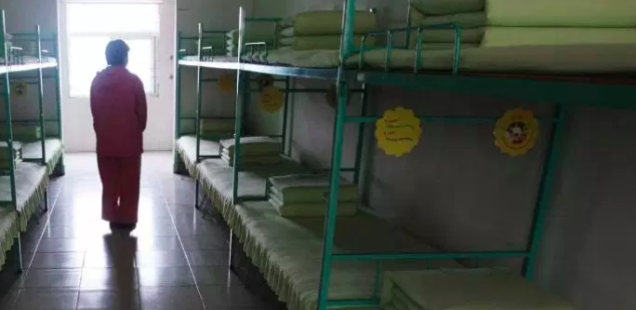
‘Made In China’ Becoming ‘Made By China’
I met two Chinese men on my journey south from Lalibela (Northern Ethiopia) to the capital city of Addis Ababa. I don’t speak Chinese, but I tried a little, they thought my attempts were funny, and they invited me to crash for a few days inside their construction workers camp.
It was an incredible once-in-a-lifetime glimpse inside a Chinese-run construction company. Here are my main takeaways:
1. They Built An Ecosystem With Chinese Characteristics
The roughly 400 workers on-site speak only Chinese, and only the managers speak any English. Especially in Ethiopia, where local workers speak mainly Amharic, this creates a communication gap.
While eating basic Chinese food in the open-air cafeteria, you watch Chinese CCTV, which must be streamed directly from China. In your dorms, you may play Mahjong into the night.
There’s a big cement wall encircling the working and living areas. If you do venture outside, your most frequent destination will be the red lanterns signaling a traditional Chinese restaurant where the staff speaks strictly Chinese and the television is strictly Chinese channels.
2. They’ve Brought Chinese Working Conditions With Them
All of the negative things I’d heard about ‘poor working conditions in China’ were visible, though not to the negative extreme often portrayed.
Workers live in small, smoky sheet-metal–wall rooms with 4 bunks (8 beds). Breakfast was tasteless rice porridge with white Chinese buns, and a little pickled vegetable for flavor. My host simply called the food ‘Bad’ and I couldn’t imagine the same every day for 2 years or more, the typical length of time the worker stays on the job site.
“30 minutes is enough.” My host told me when I asked if the workers had 1 hour for lunch. Just earlier that week, his boss had told him “Stay here until I tell you to leave.” even though his company’s work was done.
The bathroom is a cement room with 2 rows of ramps cutting into the floor, no running water, and a perpetual stink. S**t stays where you leave it, and I believe someone must come in with a bucket twice per day to ‘flush’.
A real treat, there is 24/7 hot water. With other luxuries spared, this was my highlight!
Working conditions and boss-worker relationships seemed sub-par, but their organization was low-cost and got work done fast. The Chinese workers will put up with sub-par conditions while still performing efficiently and with quality. It hit me “Made in China’ needs to be expanded to ‘Made by China’ because of all the work happening outside the Middle Kingdom. (90% of the construction materials are from China.)
3. The Chinese Believe Locals, And Local Companies, Aren’t Well-Managed
Often, we associate Chinese goods with ‘low quality’. This is what China thinks about Ethiopian companies.
Speaking from the roof of his nearly finished hotel, my host told me a story. “When we arrived here 3 years ago, those half-finished buildings look exactly the same as they look now. No change or progress.”
“Construction companies here use outdated building techniques that we haven’t used in China for 40 years. They’re painfully slow and inefficient.
“Often, Ethiopian constriction companies use tree branches for scaffolding. After years or overuse, these sticks break and sometimes a worker will die. A Chinese company would never break government safety regulations like that. We use steel pipe scaffolding.”
While some workers liked to show off their local girlfriends, a strong feeling of ‘us’ and ‘them’ prevailed.
The general consensus was that Ethiopian workers, except for ‘the smart ones’ (not my words) were lazy, unskilled, and looking for an opportunity to steal items like phones from Chinese workers. “A phone isn’t so valuable to someone from China, for them its treasure.”
4. Why Do Chinese Workers Come To Africa?
Two simple reasons: It pays well and international experience looks good on their resume.
You can get promoted more quickly even if you switch companies in the future. Your status is immediately higher.
At least for the individuals who come from China, this is about a personal and business opportunity to build real infrastructure to help real people and a chance to have a better life, not a grand scheme to expand Chinas Neo-Colonial Dominance.
I felt some of that all-American entrepreneurial spirit, braving the frontier in search of opportunity. The narrative just includes a few added Chinese characteristics.
Other than a slightly-perceptible air of superiority, I didn’t see any negative interactions between the locals and the Chinese workers. The buildings were real and would look beautiful, and locals will learn the modern trade and then go begin their own modern companies.
“Made in China” is fast becoming a more global “Made by China” as the Middle Kingdom reaches beyond its borders. On a construction camp in Addis Ababa, I saw this transition first-hand.

Thank you for another fascinating article, Nico!
I enjoyed sharing your call to your parents when I happened to be at their house recently. You are, indeed, leading an amazing life1
Wishing you a peaceful holiday,
Joan